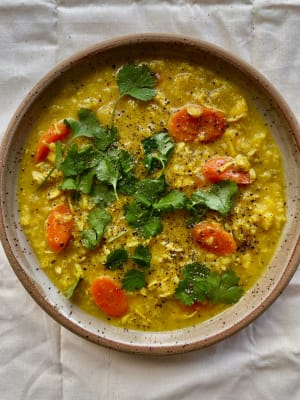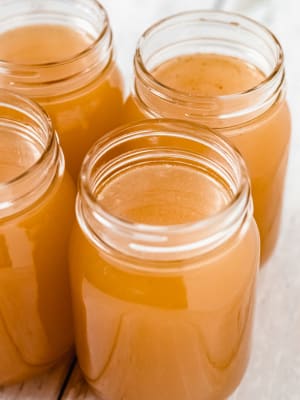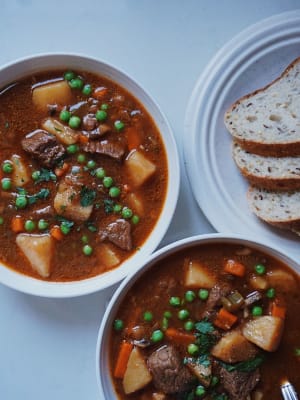Rily's Guide to Surviving Cold & Flu Season
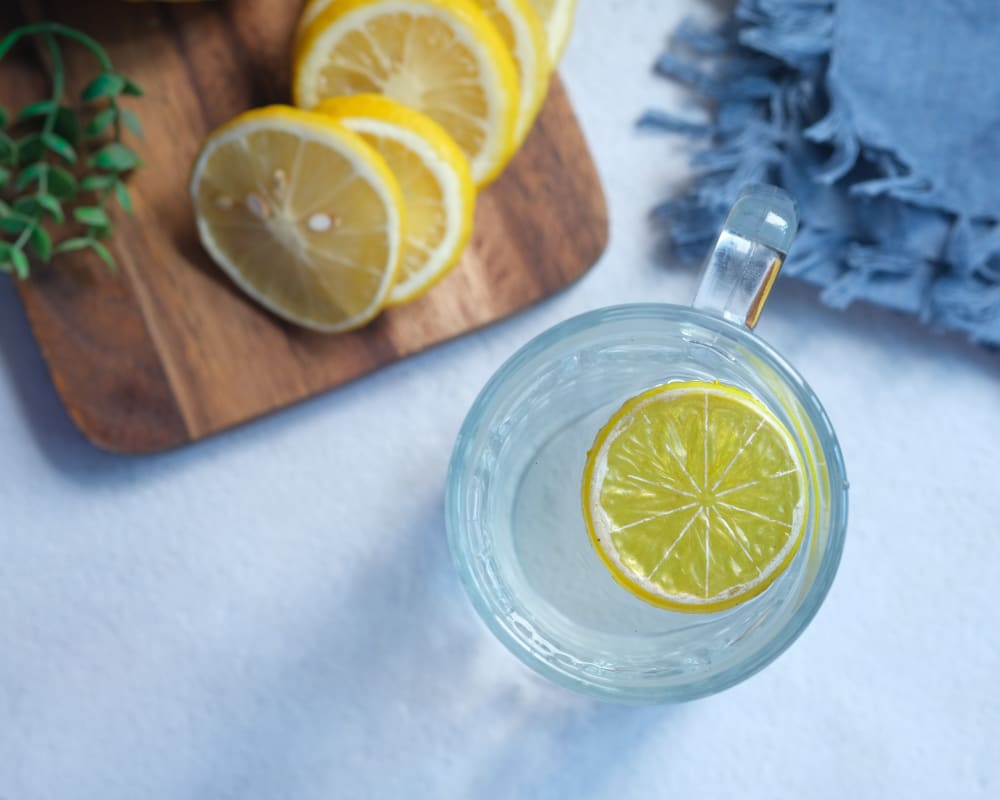
Rily's Guide to Surviving Cold & Flu Season
Some of our top tips for prevention, symptom management, and treatment this cold and flu season.
This guide has attempted to summarize currently available scientific literature on healing foods that actually work to shorten the duration of an upper respiratory tract infection, reduce the severity of symptoms like runny nose and sore throat, and even limit contagion.
Being sick sucks, and anything we can do to ease or shorten the discomfort for ourselves or our loved ones, especially when safe and scientifically substantiated, ought to be embraced.
I invite you to think of what follows as equal parts shopping list, menu, and action plan.
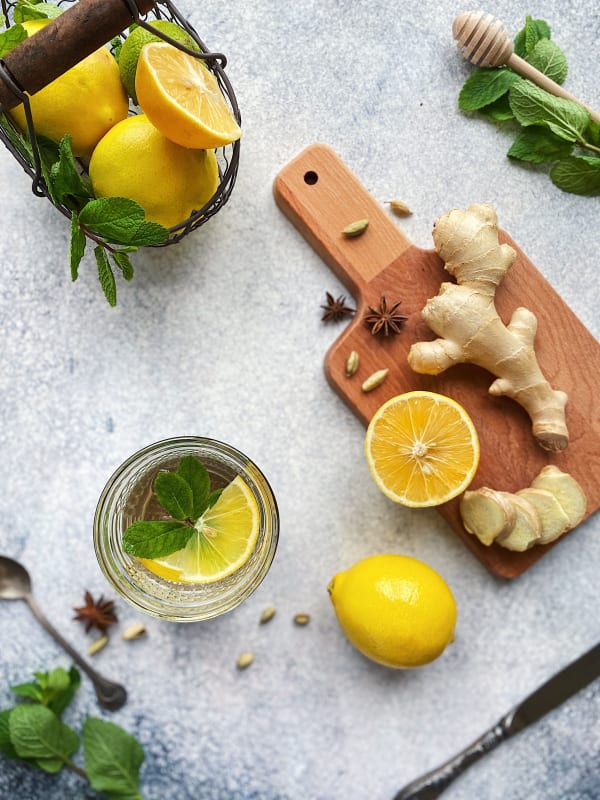
Fresh Ginger
This spicy warmer-upper works synergistically with its Zingiberaceae root cousin turmeric to soothe a sore throat and bolster immune defences. It seems to be principally known as a soothing carminative for the gut. Less well-known, however, is ginger’s alter-ego as an upregulator of immune signalling. In this context, ginger boosts Type 1 T-helper cells, a key component of the adaptive immune system that specifically targets viruses and bacteria.
Particularly helpful during a cold or flu, ginger is also appropriate to eat liberally through the whole winter to add some drying heat to the cold dampness of the season.
Turmeric Powder
Turmeric provides the profound natural anti-inflammatory compound curcumin, but is known to be poorly bioavailable. Fortunately, a little goes a long way because curcumin acts as a messenger to switch on our genetic machinery.
Adding turmeric powder to your recipes can significantly help with coughing and sneezing during sickness. In fact, turmeric seems to improve overall nasal airflow no matter what might be impeding it, from a bad cold to allergic rhinitis.
The golden root powder appears to achieve this by lowering histamine and reducing local inflammation in airways- it doesn’t need to get absorbed into general circulation to do so!
Read more about turmeric here.
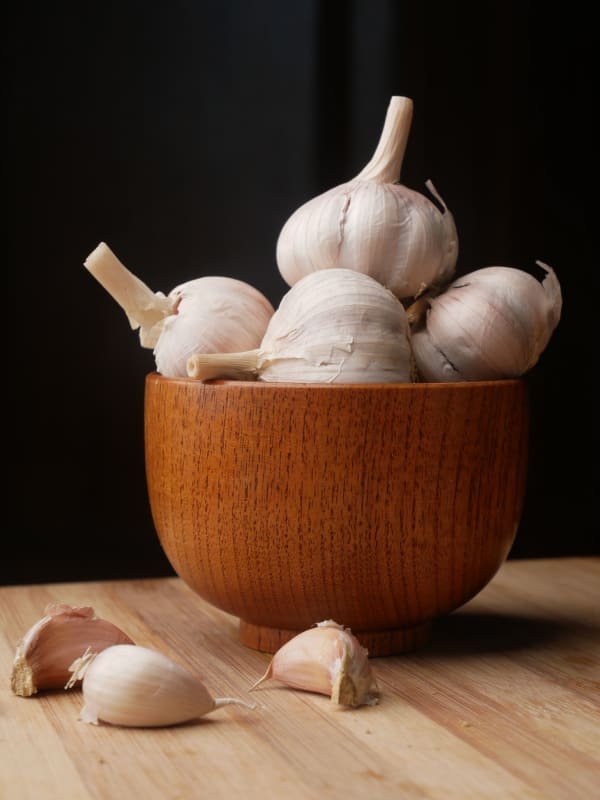
Fresh Garlic
Warding off cellular vampires, perhaps? Garlic is directly virucidal and has been used to fight infections and tonify circulation and immune function for hundreds of years. It is nature’s immune-stimulating antibiotic par excellence. When you’re sick, don’t succumb to thinking of garlic as ‘good for you’ in a general way: this is cold medicine.
While it does have an impressive chemical composition and broad implications for overall health, it’s specifically well-known to treat viral infections effectively. Symptom severity, number of days sick, and incidences of cold and flu can all be reduced by eating garlic.
Read more about garlic.
Raw Honey
This one should be no chore. Honey is immediately soothing to the throat via its coating demulcent properties, but it also has immunomodulating effects and can support antiviral white blood cell activity. For those with a sweet tooth, this may be an excellent way to appease it without hampering antiviral immune function like refined sugar would. It can even be gargled with salt water if the throat is rough shape (see below).
One JAMA study found that honey was even better than dextromethorphan for preventing nighttime coughing and improving sleep for sick children. The study showed that the kids’ parents got better sleep too!
Read more about honey.
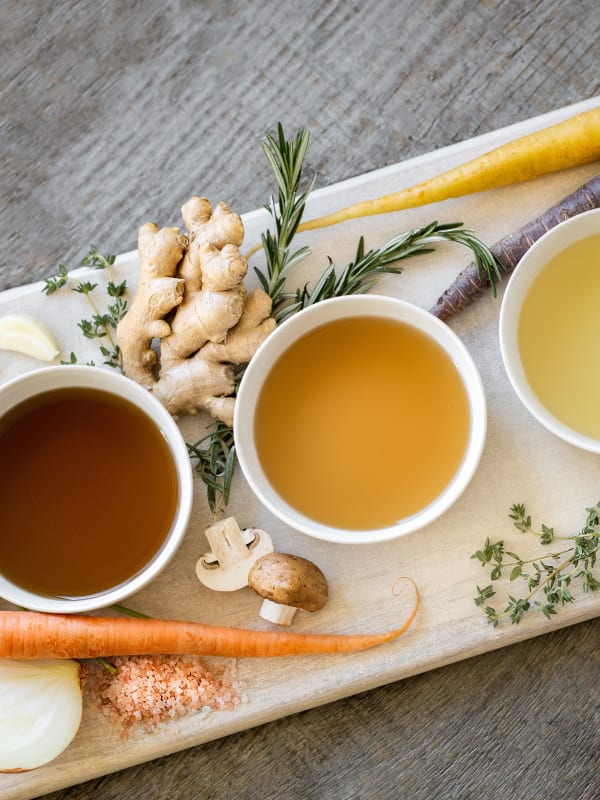
Horseradish
Since time immemorial, this pungent sulphurous root has been used in Slavic cultures as a traditional remedy for cold and flu symptoms. The inimitable cold camphor-like burn of horseradish increases circulation, which in turn can promote facial drainage and the easy clearing of mucus from sinus passages.
This is nature’s internal VapoRub. Horseradish can also reduce inflammation in the airways by a mechanism not entirely different from curcumin. And it’s delicious!
Read more about horseradish here.
Chicken Bone Broth
This unctuous nectar has made a ferocious cultural comeback lately, and whether store-bought or homemade, it can provide an excellent foundational survival tonic. Depending on the appetite, it can be sipped as a comforting clear consomme to supply precious electrolytes and amino acids or easily built up into a complete, nourishing meal with meat and veggies. Either way, chicken soup improves cold and flu symptoms.
Bone broth can be substituted for low histamine alternative meat broth for anyone with mast cell issues. Shiitake & miso broth can be used as plant-based options.
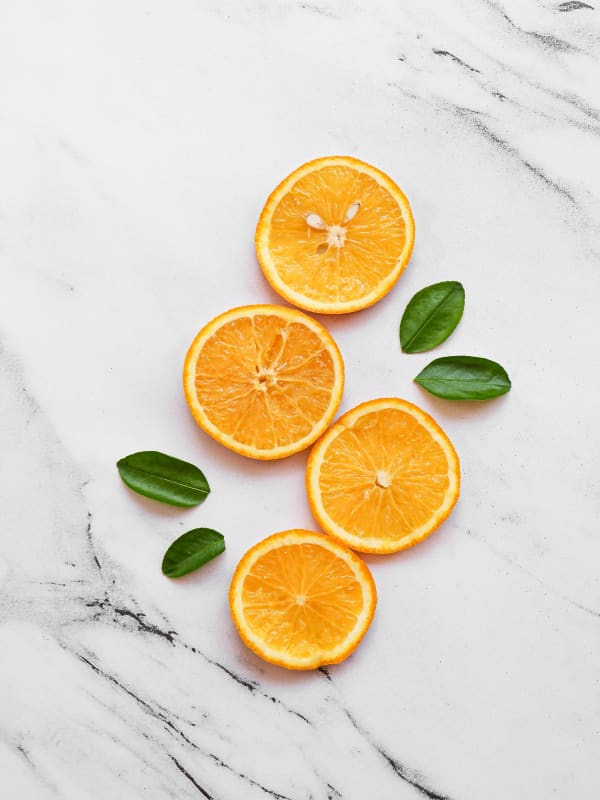
Oranges
If you think about it, eating oranges in flu season is a cheat code for those of us in the North. It’s not exactly local or seasonal. But vitamin C, as we know, is rapidly depleted while fighting a viral infection, and putting it back in the picture is kind of like supplying our troops with more ammo when they need it the most.
Not only can oranges deliver a synergistic cocktail of vitamin C, quercetin, and bioflavonoids directly to a sore throat, but they can add a much-needed zestiness when you’re feeling, well, gross. Oranges can be substituted for lemons or limes but don’t offer the same easy snacking potential.
Beef
Like vitamin C, extra zinc won’t necessarily help, but deficiency might hurt. While earlier studies were mixed, more recent research has confirmed that preventing zinc deficiency can speed recovery and reduce symptoms. Dietary protein is also a significant player in immune function. High-quality grass-fed beef is an excellent source of both. It will also balance blood sugar and create a tangible grounding effect to anchor you.
We don’t always think of meat as healing food, but I would encourage you to do so actively while fighting your cold or flu. Alternatively, oysters and chicken are also excellent sources of zinc, and pumpkin seeds are a great plant-based option.
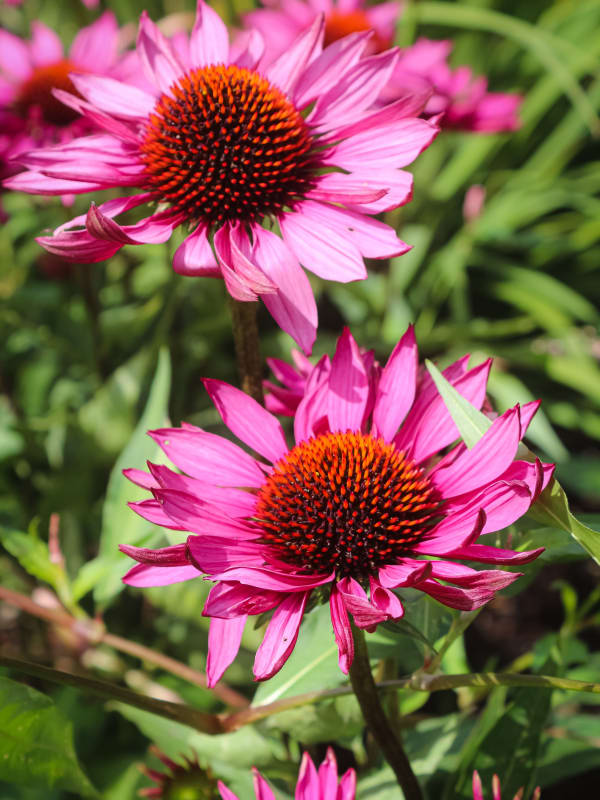
Echinacea Tea
Whether it’s generations of herbal wisdom or massive water-tight meta-analyses in prestigious journals like The Lancet, evidence overflows: echinacea works. Not only does it make for a good winter strategy to get sick half as often, but it can shorten flu duration by a day and a half while lessening the severity of symptoms like sore throat and runny nose. It even seems to reduce the chances of post-infection complications of upper respiratory tract infections.
The best part of echinacea is that it’s safe for the whole family: check with your family doctor or pediatrician first, but it is generally considered safe for kids and during pregnancy.
Salt
This one may be surprising, but the clinical evidence is real: gargling salt water and using it to irrigate the nose via a Neti Pot significantly reduce the duration, severity, and even contagiousness of upper respiratory tract infections. Not only does salt rinsing drain stubborn mucus from the sinuses and throat, but it also has a lesser-known immunological benefit: sodium chloride (table salt) activates virus-specific immune responses in the epithelial cells lining the airways. When using a Neti Pot, boil the water beforehand to sterilize it, and patiently let it cool before using.
Read more about salt.
Putting it all together:
Note that ginger, garlic, turmeric, horseradish, and meat can all go in your bone broth together, along with onions, spinach, or whatever veggies you have on hand. Then you have echinacea tea with honey to sip on (adding lemon juice is even better) and oranges to snack on. Having these things on hand, with an ability to combine as appetite and symptoms require, makes for a very flexible modular support system that takes the guesswork out of what to do.
In a sense, this guide is about taking care of your seasonal illnesses effectively with as little force or effort as possible: it’s all about support.
Honourable Mentions:
Sleep: This should be a top priority, along with anything that supports it, from herbal support, sleep hygiene, bedroom temperature, a nice wind-down routine, eye shades, blackout curtains, sleep-based guided meditations, deep breathing, and getting to bed early.
Stress: Unbalanced stress will keep you sicker for longer. If your sickness is in response to overwhelming work or life stress, it may be doubly true that what you need to do is slow down. For many of us, sickness is our only break from the demands of the modern world. I recommend embracing the opportunity to rest as much as possible. The best way to deal with stress is by taking a proactive approach: guided meditations, gentle yoga or qigong, hot baths, or whatever works for you will do it. But you have to do it!
Laughter: If you’re stuck at home anyway, save the Dahmer series for another time and watch something that makes you laugh, and this is key, out loud. It will be good for your immune system! They don’t send clowns to hospitals for no reason: laughter raises immune function and the adaptive antiviral response in particular.
Get Well, Then Stay Well: Trust the science. Trust the medicinal properties of food, and trust that your body is wise and will heal when supplied with everything it needs to do so.
9 health benefits of horseradish that might surprise you. Dennis' Horseradish. (2021, November 25). Retrieved March 15, 2023, from https://dennishorseradish.com/health-benefits-horseradish/
Berk, L., & Tan, S. (n.d.). The laughter - Immune connection . Retrieved March 15, 2023, from http://www.hospitalclown.com/archives/vol-02/vol-2-1and2/vol2-2berk.PDF
Giles, J. T., Palat, C. T., Chien, S. H., Chang, Z. G., & Kennedy, D. T. (2000). Evaluation of echinacea for treatment of the Common Cold. Pharmacotherapy, 20(6), 690–697. https://doi.org/10.1592/phco.20.7.690.35173
Gupta, A. H., & Sheikh, K. (2022, October 20). Zinc? Honey? Ginger? What Actually Helps When You Have a Cold or the Flu? The New York Times. Retrieved March 15, 2023, from https://www.nytimes.com/article/flu-cold-home-remedies.html
Hopkins, A. B. (n.d.). Chicken Soup Cure May Not Be a Myth. ProQuest. Retrieved March 15, 2023, from https://www.proquest.com/openview/2f62296a53c5cf6e3736a88fcd405fe1/1?pq-origsite=gscholar&cbl=37199
Hunter, J., Arentz, S., Goldenberg, J., Yang, G., Beardsley, J., Myers, S. P., Mertz, D., & Leeder, S. (2021, October 1). Zinc for the prevention or treatment of acute viral respiratory tract infections in adults: A rapid systematic review and meta-analysis of Randomised Controlled Trials. BMJ Open. Retrieved March 15, 2023, from https://bmjopen.bmj.com/content/11/11/e047474
Immunology 101: Balancing T helper cells and T regulatory cells. Rain Organica. (n.d.). Retrieved March 15, 2023, from https://rainorganica.com/blogs/news/immunology-101-balancing-t-helper-cells-and-t-regulatory-cells
Josling, P. (n.d.). Preventing the common cold with a garlic supplement: A double-blind, placebo-controlled survey - advances in therapy. SpringerLink. Retrieved March 15, 2023, from https://link.springer.com/article/10.1007/BF02850113
Karacabey, K., & Ozdemir, N. (2012, November 29). The Effect of Nutritional Elements on The Immune System. OMICS International. Retrieved March 15, 2023, from https://www.omicsonline.org/open-access/the-effect-of-nutritional-elements-on-the-immune-system-2165-7904.1000152.php?aid=10186
Marzocco, S., Calabrone, L., Adesso, S., Larocca, M., Franceschelli, S., Autore, G., Martelli, G., & Rossano, R. (2015). Anti-inflammatory activity of Horseradish (Armoracia Rusticana) root extracts in LPS-stimulated macrophages. Food & Function, 6(12), 3778–3788. https://doi.org/10.1039/c5fo00475f
Nantz, M. P., Rowe, C. A., Muller, C. E., Creasy, R. A., Stanilka, J. M., & Percival, S. S. (2012). Supplementation with aged garlic extract improves both NK and γδ-T cell function and reduces the severity of cold and flu symptoms: A randomized, double-blind, placebo-controlled nutrition intervention. Clinical Nutrition, 31(3), 337–344. https://doi.org/10.1016/j.clnu.2011.11.019
Nikkhah Bodagh, M., Maleki, I., & Hekmatdoost, A. (2018). Ginger in gastrointestinal disorders: A systematic review of Clinical Trials. Food Science & Nutrition, 7(1), 96–108. https://doi.org/10.1002/fsn3.807
Ounce of prevention, pound of cure. University of Cambridge. (2012, October 9). Retrieved March 15, 2023, from https://www.cam.ac.uk/research/news/ounce-of-prevention-pound-of-cure
Patel, U. (2021, July 15). How to Fight the Flu at Home. eMediHealth. Retrieved March 15, 2023, from https://www.emedihealth.com/respiratory-health/cough-cold-flu/flu-prevention
Paul, I. M., Beiler, J., & McMonagle, A. (2007). Effect of honey, dextromethorphan, and no treatment on nocturnal cough and sleep quality for coughing children and their parents. Archives of Pediatrics & Adolescent Medicine, 161(12), 1140. https://doi.org/10.1001/archpedi.161.12.1140
Ramalingam, S., Graham, C., Dove, J., Morrice, L., & Sheikh, A. (2019, January 31). A pilot, open labelled, randomised controlled trial of hypertonic saline nasal irrigation and gargling for the Common Cold. Nature News. Retrieved March 15, 2023, from https://www.nature.com/articles/s41598-018-37703-3
Rao, G., & Rowland, K. (2011, November). Purls: Zinc for the common cold--not if, but when. The Journal of family practice. Retrieved March 15, 2023, from https://www.ncbi.nlm.nih.gov/pmc/articles/PMC3273967/
Rouf, R., Uddin, S. J., Sarker, D. K., Islam, M. T., Ali, E. S., Shilpi, J. A., Nahar, L., Tiralongo, E., & Sarker, S. D. (2020). Antiviral potential of garlic (allium sativum) and its organosulfur compounds: A systematic update of pre-clinical and Clinical Data. Trends in Food Science & Technology, 104, 219–234. https://doi.org/10.1016/j.tifs.2020.08.006
Saketkhoo, K., Januszkiewicz, A., & Sackner, M. A. (1978). Effects of drinking hot water, cold water, and chicken soup on nasal mucus velocity and nasal airflow resistance. Chest, 74(4), 408–410. https://doi.org/10.1016/s0012-3692(15)37387-6
Saleem, A. M., Rani, S., & Daniel, S. (n.d.). Effectiveness of tulsi leaves and turmeric in steam inhalation to relieve symptoms of common cold. International Journal of Nursing & Midwifery Research (E-ISSN: 2455-9318). Retrieved March 15, 2023, from http://medical.advancedresearchpublications.com/index.php/IntlJ-Nursing-MidwiferyResearch/article/view/70
Samarghandian, S., Farkhondeh, T., & Samini, F. (2017). Honey and health: A review of recent clinical research. Pharmacognosy Research. Retrieved March 15, 2023, from https://www.ncbi.nlm.nih.gov/pmc/articles/PMC5424551/
Shah, S. A., Sander, S., White, C. M., Rinaldi, M., & Coleman, C. I. (2007). Evaluation of echinacea for the prevention and treatment of the common cold: A meta-analysis. The Lancet Infectious Diseases, 7(7), 473–480. https://doi.org/10.1016/s1473-3099(07)70160-3
Staughton, J. (2021, June 1). 7 Proven Health Benefits of Horseradish. Organic Facts. Retrieved March 15, 2023, from https://www.organicfacts.net/health-benefits/vegetable/horseradish.html
Takahashi, K., Chang, W.-C., Moyo, P., White, M. R., Meelu, P., Verma, A., Stahl, G. L., Hartshorn, K. L., & Yajnik, V. (2011). Dietary sugars inhibit biologic functions of the pattern recognition molecule, mannose-binding lectin. Open Journal of Immunology, 01(02), 41–49. https://doi.org/10.4236/oji.2011.12005
Takahashi, K., Chang, W.-C., Moyo, P., White, M. R., Meelu, P., Verma, A., Stahl, G. L., Hartshorn, K. L., & Yajnik, V. (2011). Dietary sugars inhibit biologic functions of the pattern recognition molecule, mannose-binding lectin. Open Journal of Immunology, 01(02), 41–49. https://doi.org/10.4236/oji.2011.12005
Troisi, J. D., & Gabriel, S. (2011). Chicken soup really is good for the soul. Psychological Science, 22(6), 747–753. https://doi.org/10.1177/0956797611407931
Walters, S. A. (2021). Horseradish: A neglected and underutilized plant species for improving human health. Horticulturae, 7(7), 167. https://doi.org/10.3390/horticulturae7070167
Wu, S., & Xiao, D. (2016). Effect of curcumin on nasal symptoms and airflow in patients with perennial allergic rhinitis. Annals of Allergy, Asthma & Immunology, 117(6). https://doi.org/10.1016/j.anai.2016.09.427

